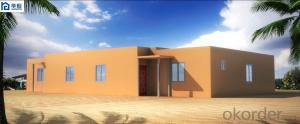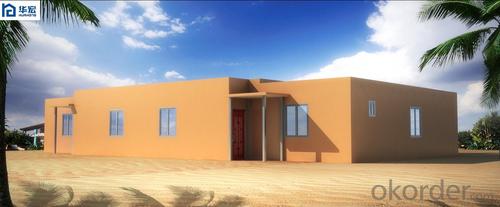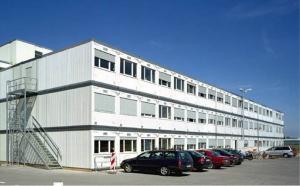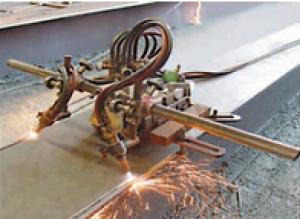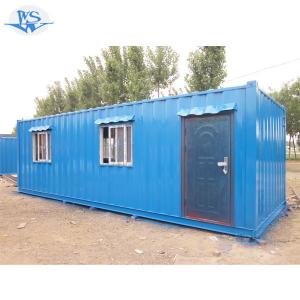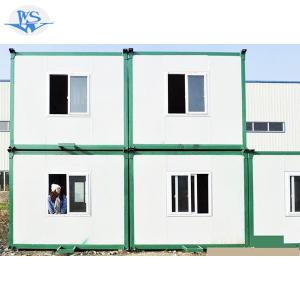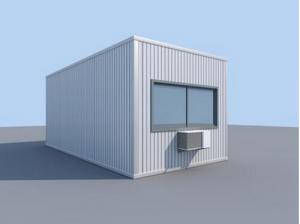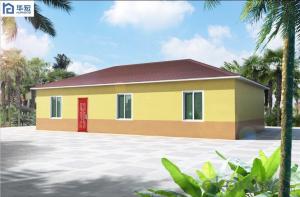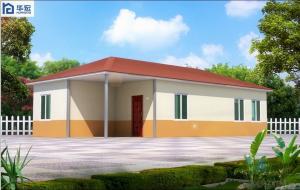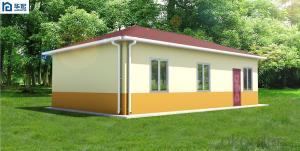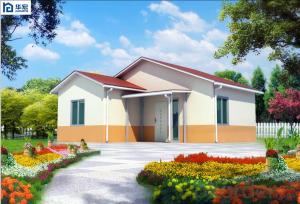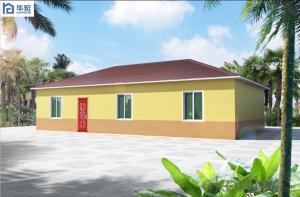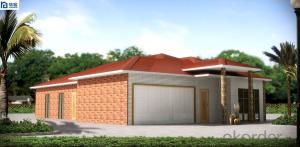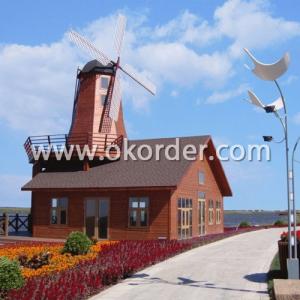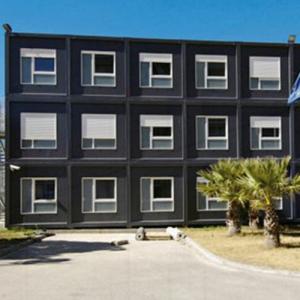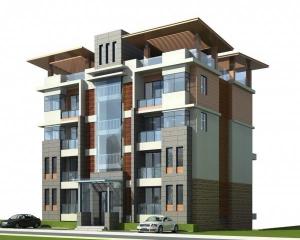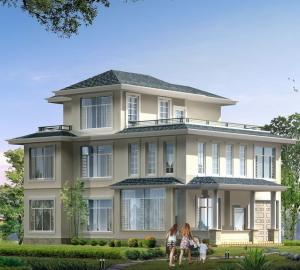Cement house from China
- Loading Port:
- China Main Port
- Payment Terms:
- TT OR LC
- Min Order Qty:
- -
- Supply Capability:
- -
OKorder Service Pledge
OKorder Financial Service
You Might Also Like
More questions:
1, What's your Payment term:
30% deposit by TT, 70% balance before loading container by TT; 100% LC at sight(total payment over 100,000USD);
2, How about Shipping:
We use 20 feet container and 40HQ container to ship the goods; Usually one 20 feet container can load about 50-60 square meters' house, 40HQ container can load about 120-140 square meters's house.
3, How to become your agent in our country:
First, you can make a report about your market, include the the rules and laws of prefab house, popular house models, target price, and potential sales quantity.
Second, you must place a trial order to act as the display.
Third, after finishing the sample house and getting the local people's feedback, we will give you the agent right in one area with limited time.
Fourth, Please note that we already have agent in Mumbai City India; Marshall Islands, Trinidad and Tobago.
4, Can you help me to purchase other things like furniture or appliance:
Because the customs law, our company can only export prefab house, so we just can purchase very little matched kitchen and bathroom facilities for you in consideration of customs clearance.
5, Can you send workers to help me build house.
Considering the labor cost, safety and visa issues, we suggest to send one or two engineers to guide and train your staffs. You must provide air tickets, hotel, and meal, and 100USD per day for engineer salary.
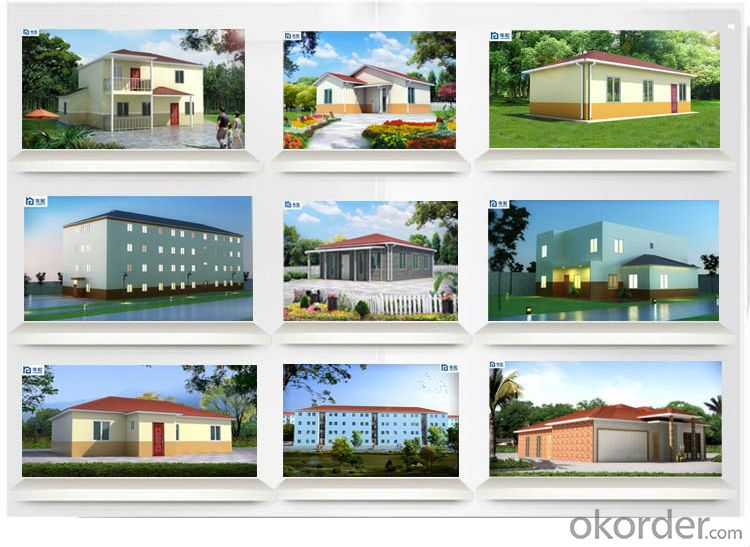
- Q: How about the comparison of container houses?
- Commercial housing: Shenzhen, Shanghai, the average price of about 45,000 yuan per square meter
- Q: Can container houses be designed with a rooftop solar panel system?
- Yes, container houses can definitely be designed with a rooftop solar panel system. In fact, container houses are often considered an ideal option for incorporating sustainable and renewable energy sources such as solar panels. The flat and spacious rooftop of a container house provides an excellent platform for installing solar panels, allowing for maximum exposure to sunlight and optimal energy generation. Rooftop solar panel systems are a popular choice for container houses due to their numerous benefits. Firstly, solar panels generate clean and renewable energy, thereby reducing the carbon footprint and environmental impact of the house. This aligns with the eco-friendly nature of container houses, which are already considered a sustainable housing solution due to their repurposed and recycled materials. Additionally, container houses are typically smaller in size compared to traditional homes, making it easier to meet their energy demands with a rooftop solar panel system. The electricity generated from the solar panels can power the entire house or supplement the grid supply, reducing reliance on non-renewable energy sources and potentially leading to significant cost savings on energy bills. Furthermore, container houses are often designed to be mobile or modular, allowing for easy relocation or expansion. This mobility and modularity also apply to the solar panel system, making it adaptable to different locations and configurations. The flexibility of container houses combined with rooftop solar panels offers homeowners the opportunity to live sustainably and independently, even in remote or off-grid areas. In conclusion, container houses can be effectively designed with a rooftop solar panel system. This integration enhances their sustainability, reduces environmental impact, and provides homeowners with a clean and reliable source of energy.
- Q: Are container houses suitable for permanent living?
- Yes, container houses can be suitable for permanent living depending on the specific needs and preferences of the individuals. Container houses offer several advantages such as affordability, sustainability, and ease of construction. With proper insulation, customization, and maintenance, container houses can provide a comfortable and functional living space for long-term use. However, it is important to consider factors like local regulations, space requirements, and lifestyle preferences before deciding if container houses are suitable for permanent living.
- Q: Can container houses be designed with a traditional or rustic style?
- Yes, container houses can definitely be designed with a traditional or rustic style. While shipping containers are typically associated with a modern and industrial aesthetic, they can also be transformed to have a more traditional or rustic appearance. Design elements such as wooden cladding, stone veneers, or even brick facades can be added to the exterior of the container house to give it a more traditional look. These materials can help create a warm and inviting atmosphere, reminiscent of traditional homes. Additionally, the interior of the container house can be designed with rustic elements such as exposed wooden beams, reclaimed wood flooring, or vintage furniture. These features can contribute to a cozy and rustic ambiance, while still maintaining the unique and sustainable aspects of container living. Overall, with careful planning and design choices, container houses can be customized to fit any style, including traditional or rustic aesthetics.
- Q: Are container houses suitable for retirement communities or senior living?
- Yes, container houses can be suitable for retirement communities or senior living. They offer numerous advantages such as cost-effectiveness, quick construction time, mobility, and energy efficiency. Additionally, container houses can be easily modified to accommodate the specific needs of seniors, such as wheelchair accessibility and safety features.
- Q: Are container houses pest-resistant?
- The pest resistance of container houses depends on the measures taken during construction and ongoing maintenance. Unlike traditional wooden structures, shipping containers, which are typically made of steel, cannot be eaten through by pests like termites. However, pests such as rodents, insects, and mold can still infiltrate container houses through small openings and gaps if not properly sealed and insulated. To ensure pest resistance, it is crucial to seal all openings, including windows, doors, and ventilation systems, to prevent pests from entering. Insulation should also be installed to eliminate potential entry points. Regular inspections and maintenance are essential for identifying and addressing any vulnerabilities or signs of pest activity. Using pest-resistant materials, such as treated wood or pest-resistant insulation, during construction can also discourage pests. Proper waste management practices and keeping the surrounding area clean and free from debris can further reduce the risk of attracting pests. In conclusion, container houses can be made pest-resistant through appropriate construction techniques and ongoing maintenance. However, it is important to remain vigilant in preventing and addressing any potential pest issues.
- Q: Are container houses suitable for cold climates?
- Yes, container houses can be suitable for cold climates. With proper insulation and heating systems, container houses can effectively maintain warmth and provide comfortable living conditions even in cold weather. Additionally, container houses can be designed to withstand harsh weather conditions, making them a viable option for cold climates.
- Q: Are container houses suitable for individuals who enjoy DIY projects?
- For individuals who have a passion for DIY projects, container houses are definitely a suitable option. In fact, they can be a fantastic choice for those who enjoy rolling up their sleeves and taking on various DIY tasks. Container houses present a wonderful opportunity for creative individuals to design and construct their very own unique living space. One of the major advantages of container houses lies in their modular design, which allows for effortless customization. Individuals can easily modify both the interior and exterior of the container to align with their personal preferences. DIY enthusiasts can put their skills to use by creating personalized layouts, installing unique fixtures, and adding creative touches to their container homes. Furthermore, container houses offer a cost-effective alternative for DIY projects. Containers can often be acquired at a relatively low cost, particularly when compared to traditional construction materials. This enables individuals to allocate a larger portion of their budget towards customizing and upgrading their container home. Container houses also present an excellent opportunity for individuals to embrace sustainable living. By repurposing shipping containers, DIY enthusiasts can contribute to the reduction of waste and promote an eco-friendly lifestyle. They can incorporate energy-efficient features such as solar panels, rainwater harvesting systems, and smart appliances to further enhance sustainability. Moreover, constructing container houses is relatively straightforward compared to traditional houses. With a basic understanding of construction principles and skills, individuals can take on the challenge of building their own container home. There are numerous online resources available, including step-by-step guides and video tutorials, that can assist DIY enthusiasts throughout the construction process. To sum up, container houses are an ideal choice for individuals who enjoy engaging in DIY projects. They offer a customizable and cost-effective solution for those who wish to design and construct their own living space. With their modular design, sustainability options, and relative ease of construction, container houses provide the perfect platform for DIY enthusiasts to showcase their creativity and skills.
- Q: What is the meaning of goods warehousing?
- The traditional definition of warehousing is given from the perspective of material reserves
- Q: Can container houses be designed with a daycare or childcare facility?
- Yes, container houses can be designed with a daycare or childcare facility. Container houses offer flexibility in design and can be customized to meet specific needs, including incorporating spaces suitable for a daycare or childcare facility. With proper planning and design considerations such as appropriate layout, safety measures, ventilation, and insulation, container houses can provide a comfortable and functional environment for a daycare or childcare facility.
Send your message to us
Cement house from China
- Loading Port:
- China Main Port
- Payment Terms:
- TT OR LC
- Min Order Qty:
- -
- Supply Capability:
- -
OKorder Service Pledge
OKorder Financial Service
Similar products
Hot products
Hot Searches
